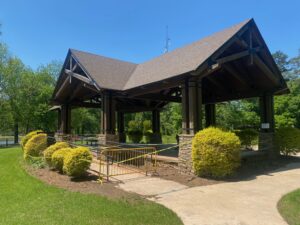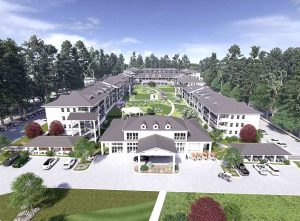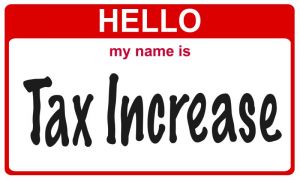The Peachtree City Council continues to appear headed for a deadlocked vote on the millage rate for the 2010-2011 fiscal budget year.
A discussion of the matter got a bit heated at Thursday night’s council meeting. A public hearing on the budget ended without resolving a potential 2-2-1 split vote on the millage rate, which would be short of the three-vote majority needed to resolve the matter.
A .5 mill tax increase, which would cost the average $272,000 home in Peachtree City an extra $43 on its tax bill, is supported by Mayor Don Haddix and Councilman Doug Sturbaum.
A 1.25 mill tax increase, which would cost the same home $108 more than this year’s property tax bill, is supported by Councilmembers Kim Learnard and Vanessa Fleisch.
The lone vote belongs to Councilman Eric Imker, who said Thursday night that he opposed any millage rate increase for the city because he was voted into office based on that being his position toward the city’s budget.
Imker also suggested his mind could be changed if City Council were to eliminate a “second” retirement fund allowed for city employees which would save the city $170,000 a year.
Imker also said he wouldn’t commit to his opposition of any property tax increase.
“I’m certainly not going to take the position that I won’t change my mind unless I get my way,” Imker said.
That comment was a shot at the position of Haddix and Sturbaum, who both have said they would not vote in favor of any city budget that doesn’t include $150,000 in funding for the city’s development authority.
That would be an increase from the authority’s current funding of $35,000 a year. The increase has been opposed by council members Imker, Fleisch and Learnard.
Haddix said the city needs to fund a development authority staffer who can go recruit businesses to the city to bring jobs here. Currently the authority is supported in part by a city staffer, but Haddix contends the city employee cannot do business recruitment because tax incentives cannot be discussed.
Learnard pointed out Thursday night that she has offered a compromise: that the city would hire an employee for the city’s Community Development Department who could handle many DAPC functions.
“My argument is we should be coming here together. Mr. Mayor, can you honestly say you’ve tried to come together, work together with the five city council members in a positive spirit to work out some kind of reasonable compromise?”
Haddix replied by saying the authority’s funding request was not randomly developed as Learnard had suggested.
Development Authority Chairman Mark Hollums said the authority truly needs a full-time staffer to handle the workload that may well end up burning out the existing volunteer authority members.
Learnard noted that council does not have any measurable goals if the authority were to hire a full-time staffer.
“I have seen no goals, no metrics, no targets,” Learnard said. “What is our objective and how do we know?”
Sturbaum chided Learnard for not seeking that information earlier.
Hollums said that job duties for an authority staffer could be developed.
There are 400 remaining undeveloped acres of land in the city’s industrial park, but the city has no estimation yet of how many facilities in the park need to be redeveloped.
The development authority funding issue remained unchanged after the discussion, as none of the five council members indicated a willingness to change their mind.
In terms of the millage rate increase, the 1.25 millage rate increase is looked upon favorably by some because it would raise $10 million towards the projected $18.5 million shortfall that city officials are expecting over the next five years. That shortfall is largely attributed to the loss this year of funding of the countywide transportation sales tax, which means the city will have to find $1.5 million in its budget annually to handle road and cart path maintenance and repaving.
The other main part of the shortfall is an anticipated $1 million annual reduction in the city’s local option sales tax revenues due to the city’s population growth slowing compared to the remainder of Fayette County.
The city’s take of the county’s sales tax typically is adjusted to the most recent population figures from the U.S. Census.










Leave a Comment
You must be logged in to post a comment.